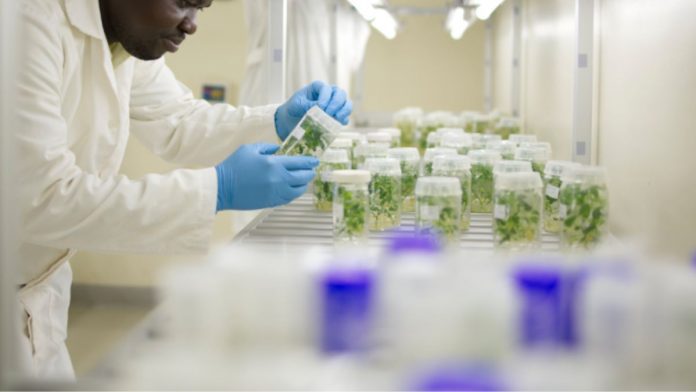News in brief:
– Nigeria has announced plans to introduce more high-yielding crop varieties nationwide following the approval of the TELA maize varieties.
– There are ongoing efforts with stakeholders and foreign partners to leverage the transformative potential of these varieties in revolutionising agricultural productivity and enhancing food security.
Following the recent approval of insect-resistant and drought-tolerant TELA maize for commercial cultivation, the Nigerian government is set to introduce even more high-yielding crop varieties to farmers nationwide.
In an announcement by Minister of Innovation, Science, and Technology Uche Nnaji during a press conference at the National Biotechnology Development Agency (NABDA) headquarters in Abuja, he disclosed that the TELA maize varieties release was just a glimpse of the transformative potential at the country’s disposal.
The minister noted biotechnology agency’s ongoing efforts, in collaboration with stakeholders and foreign partners, to release additional crop varieties.
Furthermore, he highlighted the significant role these new varieties can play in revolutionising agricultural productivity and strengthening Nigeria’s food security. Minister Nnaji encouraged farmers to adopt the newly released TELA maize, describing it as a significant step towards achieving a more prosperous, sustainable, and food-secure future for the nation.
He also highlighted the government’s commitment to leveraging biotechnology to address agricultural challenges, improve crop resilience, and enhance the livelihoods of farmers and citizens.
Additionally, he noted that this initiative strengthens Nigeria’s position in the global agricultural landscape, fostering economic stability and opening new avenues for trade and export.
Subsequently, the minister expressed his gratitude to NABDA for their relentless efforts and support towards this groundbreaking achievement, acknowledging their pivotal role in advancing the agricultural sector and their unwavering commitment to boosting food security and agricultural sustainability.
He also extended his appreciation to partners and President Bola Tinubu, recognising his commitment to ‘turning innovation into an engine of growth’ and commending the dedication and expertise of the scientists, researchers, and collaborators who contributed to the development and release of these transgenic crop varieties.



